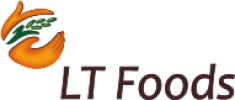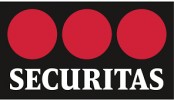Security Manager
50+ Security Manager Interview Questions and Answers

Asked in Central Bureau of Investigation

Q. In some sugar industry's the sugar cane dumped manually then the seasonal workers want's to. purchasing cane unroder, then how the problem solve.
Implementing mechanized cane dumping and purchasing systems can solve the problem of manual dumping and purchasing by seasonal workers in the sugar industry.
Introduce mechanized cane dumping machines to automate the process and reduce the need for manual labor.
Implement a digital purchasing system where farmers can sell their cane directly to the sugar industry without the need for middlemen or seasonal workers.
Provide training and support for farmers to adapt to the new mech...read more

Asked in LT Foods

Q. How would you handle a union and crowd control situation in a plant?
Handling union and crowd control in plant requires effective communication, planning, and collaboration.
Establish clear communication channels with union representatives to address concerns and prevent conflicts.
Develop a comprehensive crowd control plan that includes designated areas for protests and demonstrations.
Train security personnel and plant employees on crowd control techniques and protocols.
Collaborate with local law enforcement to ensure a coordinated response in ...read more
Security Manager Interview Questions and Answers for Freshers

Asked in Central Bureau of Investigation

Q. In some company's. 2. or. 3 unions how they feel critical obligations
Unions in companies with critical obligations may feel resistant, concerned, or empowered depending on the situation.
Unions may feel resistant if critical obligations lead to job cuts, reduced benefits, or increased workload.
Unions may feel concerned if critical obligations threaten job security or workplace safety.
Unions may feel empowered if critical obligations provide opportunities for negotiation, collaboration, or improved working conditions.

Asked in Central Bureau of Investigation

Q. How do you address employee misconduct in the company?
Addressing worker tooldowns requires effective communication, support, and proactive measures to ensure safety and productivity.
Conduct regular safety training sessions to educate workers on proper tool usage and maintenance.
Implement a reporting system for workers to voice concerns about tools or equipment that may be malfunctioning.
Establish a routine inspection schedule for tools to ensure they are in good working condition.
Encourage a culture of teamwork where workers can...read more

Asked in Ceat Tyres

Q. In private sugar factories where coal boilers are frequently used, why is this the case?
Coal boilers are used frequently in private sugar factories due to their ability to efficiently generate high amounts of heat required for the sugar production process.
Coal boilers have a high heat output, making them ideal for the energy-intensive process of sugar production.
Coal is a relatively inexpensive fuel source compared to other alternatives, making it cost-effective for sugar factories.
Coal boilers can be easily integrated into existing infrastructure in sugar facto...read more

Asked in Ceat Tyres

Q. In sugar industry, the molasis is stored frequently in pits, not stored in molasis. tanks. Why
Molasses is stored in pits in the sugar industry due to its high viscosity and tendency to solidify.
Molasses has a high viscosity, making it difficult to pump and store in tanks.
Molasses can solidify at lower temperatures, causing issues with flow and storage in tanks.
Storing molasses in pits allows for easier access and handling during processing.
Pits provide a larger storage capacity compared to tanks for molasses in the sugar industry.
Security Manager Jobs




Asked in Ceat Tyres

Q. In the sugar industry, if the boiler firing is good but vacuum is not produced sufficiently, what could be the reason?
Insufficient vacuum in sugar industry boilers can stem from various operational inefficiencies and equipment issues.
Inadequate steam pressure can lead to poor vacuum generation; for example, if the steam pressure is below the required threshold.
Leaking vacuum lines or seals can cause loss of vacuum; a small leak can significantly impact overall performance.
Improper operation of the vacuum pumps may result in insufficient vacuum; for instance, if the pump is not sized correctl...read more

Asked in Asahi India Glass

Q. How can one manage Standard Operating Procedures (SOP) for senior employees without becoming confrontational?
Managing SOPs for senior employees requires diplomacy, clear communication, and collaboration to ensure compliance without conflict.
Engage in open dialogue: Schedule one-on-one meetings to discuss the importance of SOPs and gather their input.
Highlight benefits: Emphasize how SOPs enhance efficiency and safety, benefiting both the organization and employees.
Involve them in the process: Encourage senior employees to contribute to the development or revision of SOPs, fostering ...read more
Share interview questions and help millions of jobseekers 🌟


Asked in Ceat Tyres

Q. In the sugar industry, why is bagasse used to make biscuits?
Bagasse, a byproduct of sugar production, can be used to make biscuits due to its high fiber content and ability to add texture and flavor.
Bagasse is a fibrous material left over after sugarcane is crushed to extract the juice.
It is high in fiber, which can add nutritional value to biscuits.
Bagasse can also add texture and flavor to biscuits, making them more interesting and unique.
Using bagasse in biscuit production can also help reduce waste in the sugar industry.

Asked in TP Central Odisha Distribution

Q. There are so many register are used in main gate 1-inword 2-out word register. 3-visiter register. 4-vehicele movement register .5-company material non returned register.6-Emplees movement register.8-Contracter...
read moreThe question is about the various registers used in main gate security management.
There are different registers used for different purposes such as inword, outword, visitor, vehicle movement, company material non-returned, employee movement, and contractor material movement.
These registers help in maintaining the security and safety of the premises.
They also help in keeping track of the movement of people and materials in and out of the premises.
Regular audits of these regist...read more

Asked in Brink's

Q. How securely the shipment can be delivered out to the clients
Shipments can be securely delivered to clients through proper tracking, secure packaging, and trained personnel.
Utilize tracking systems to monitor the shipment's location and ensure timely delivery
Use secure packaging materials to protect the contents from damage or theft
Train personnel on proper handling procedures to minimize risks during transportation
Implement security measures such as seals or locks to prevent tampering
Establish clear communication channels with clients...read more

Asked in Securitas

Q. Technical aspects of security and guard deployment
Technical aspects of security and guard deployment
Technical aspects include surveillance systems, access control systems, and alarm systems
Guard deployment involves determining the number of guards needed, their placement, and their duties
Security managers must ensure that guards are properly trained and equipped with necessary tools
Regular assessments and updates to security measures are necessary to stay ahead of potential threats

Asked in Ashapura Group Of Industries

Q. How do you implement security policies, procedures, and protocols?
Implementing security policy, procedures, and protocols involves creating guidelines, rules, and processes to protect assets and mitigate risks.
Develop a comprehensive security policy that outlines the organization's security goals, objectives, and responsibilities.
Establish procedures for implementing the security policy, including access control, incident response, and security awareness training.
Define protocols for specific security measures, such as encryption, authentic...read more
Asked in Jio World Convention Centre

Q. How do you anticipate the working and deployment of servers in Jio?
Anticipating server deployment in Jio involves understanding scalability, security, and integration with existing infrastructure.
Scalability: Jio's infrastructure must support millions of users, requiring load balancing and distributed servers.
Security: Implementing robust security protocols, such as firewalls and encryption, to protect user data.
Cloud Integration: Leveraging cloud services for flexibility and resource management, as seen in Jio's partnership with Microsoft A...read more

Asked in Atos

Q. What is the difference between Vulnerability, Threat, and Risk?
Vulnerability is a weakness, threat is a potential danger, and risk is the likelihood of a threat exploiting a vulnerability.
Vulnerability: a weakness in a system that can be exploited by a threat
Threat: a potential danger that can exploit a vulnerability
Risk: the likelihood of a threat exploiting a vulnerability
Example: A vulnerability in a software program can be exploited by a hacker (threat), resulting in a data breach (risk)

Asked in Clario

Q. What are your thoughts on application security?
Security in applications is crucial to protect sensitive data and prevent unauthorized access.
Security in applications involves implementing measures to protect sensitive data from unauthorized access, such as encryption and access control.
Regular security audits and penetration testing can help identify vulnerabilities in applications.
Implementing secure coding practices, such as input validation and proper error handling, can help prevent common security threats like SQL in...read more

Asked in Jio

Q. What skills are required for effective loss prevention management?
Skills required for effective loss prevention management include attention to detail, communication, analytical thinking, and knowledge of security systems.
Attention to detail is crucial for identifying potential risks and vulnerabilities.
Strong communication skills are needed to effectively train staff and communicate security protocols.
Analytical thinking helps in assessing data and identifying patterns that may indicate theft or fraud.
Knowledge of security systems is essen...read more
Asked in Mayanagri World One

Q. How would you assign security staff when a VVIP is present?
Assign security staff based on threat assessment, proximity, and specific security needs of the VVIP.
Conduct a threat assessment to determine level of security needed.
Assign security staff based on proximity to the VVIP's location.
Consider the specific security needs of the VVIP, such as any known threats or vulnerabilities.
Ensure communication and coordination among security staff to cover all necessary areas.
Have a contingency plan in case of emergencies or unexpected situa...read more
Asked in Mayanagri World One

Q. What are gate passes, the process for using them, frisking procedures, and security protocols for the premises' perimeter?
Gate passes are issued for entry/exit, frisking is done for security check, and peripheral checks are conducted around the premises.
Gate passes are issued to individuals for entry/exit from the premises
Frisking involves physical search of individuals for security purposes
Peripheral checks are conducted around the premises to ensure security
Process includes verifying identity, checking belongings, and ensuring compliance with security protocols

Asked in Ashapura Group Of Industries

Q. Are you able to create a theft investigation report?
Yes, I am able to make theft investigation reports.
Gather all relevant information and evidence related to the theft
Interview witnesses and suspects to gather additional information
Analyze the collected data to identify patterns and potential suspects
Document findings, conclusions, and recommendations in a detailed report

Asked in Atos

Q. What are the Session Layer security protocols?
Secure session layer protocols include SSL and TLS.
SSL (Secure Sockets Layer)
TLS (Transport Layer Security)

Asked in The West Coast Paper Mills

Q. Are you willing to stay on-site?
Yes, I agree to stay on site to ensure security protocols are effectively implemented and monitored.
Staying on site allows for immediate response to security incidents.
Being present helps in building rapport with staff and addressing concerns.
On-site presence ensures compliance with security policies and procedures.
For example, during a recent event, my on-site presence helped prevent a potential security breach.

Asked in TCS

Q. What is SIEM and how is it different from XDR?
SIEM is a security information and event management system that collects and analyzes security data. XDR is an advanced threat detection and response platform that goes beyond SIEM.
SIEM collects and analyzes security data from various sources such as firewalls, servers, and endpoints.
XDR uses advanced analytics and machine learning to detect and respond to threats across multiple endpoints and networks.
SIEM is focused on security event management, while XDR provides a more co...read more
Asked in Bhutani Infra

Q. How can you improve security personnel turnout?
Effective security personnel turnout requires training, motivation, and a strong organizational culture.
Provide comprehensive training programs that cover both technical skills and soft skills, such as communication and conflict resolution.
Implement a recognition and rewards system to motivate personnel, such as 'Employee of the Month' awards.
Foster a positive work environment where security personnel feel valued and part of a team, encouraging collaboration.
Conduct regular p...read more
Asked in Bhutani Infra

Q. How do you maintain complete security data on-site?
Implementing comprehensive security data management ensures protection and compliance across all site operations.
Establish a centralized security data repository for easy access and management.
Regularly update security protocols and data to reflect current threats and compliance requirements.
Conduct routine audits and assessments to identify vulnerabilities and improve security measures.
Utilize encryption and access controls to protect sensitive security data from unauthorize...read more
Asked in Sai Ram Real Estate

Q. How many years of experience do you have in Industrial Security?
I have over 8 years of experience in industrial security, focusing on risk assessment, compliance, and incident response.
Conducted risk assessments for various industrial facilities, identifying vulnerabilities and implementing mitigation strategies.
Managed security operations for a manufacturing plant, reducing incidents by 30% through improved protocols.
Developed and implemented training programs for staff on security awareness and emergency response procedures.
Collaborated...read more
Asked in Sai Ram Real Estate

Q. How many years of experience do you have in safety and security?
I have over 8 years of experience in safety and security management across various sectors, including corporate and healthcare.
Managed security operations for a corporate office with over 500 employees, ensuring a safe working environment.
Implemented safety protocols in a healthcare facility, reducing incidents by 30% over two years.
Conducted regular training sessions for staff on emergency response and safety procedures.
Collaborated with local law enforcement to enhance secu...read more
Asked in Sai Ram Real Estate

Q. What is your role in Security Administration?
As a Security Manager, I oversee security policies, risk assessments, and incident response to protect organizational assets.
Develop and implement security policies and procedures to safeguard sensitive information.
Conduct regular risk assessments to identify vulnerabilities and recommend mitigation strategies.
Coordinate incident response efforts, ensuring timely resolution and reporting of security breaches.
Train staff on security awareness and best practices to foster a cul...read more

Asked in The Indian Hotels Company

Q. How do you deal with difficult situations?
Handling difficult situations requires a calm approach, effective communication, and strategic problem-solving skills.
Stay calm and composed: In a crisis, maintaining your composure helps you think clearly and make better decisions.
Assess the situation: Gather all relevant information before taking action. For example, if there's a security breach, identify the source and extent.
Communicate effectively: Keep all stakeholders informed. For instance, during an incident, provide...read more
Asked in D1 Fortification

Q. Introduction and certification for the performance.
Certification and experience are key for a successful security manager.
Certification in security management is important for credibility and knowledge.
Experience in security operations and management is crucial for practical skills.
Continuing education and staying up-to-date with industry trends is essential.
Examples of certifications include CPP, PSP, and CISSP.
Experience in law enforcement, military, or private security is valuable.
Soft skills such as communication, leaders...read more
Interview Questions of Similar Designations
Interview Experiences of Popular Companies








Reviews
Interviews
Salaries
Users

















